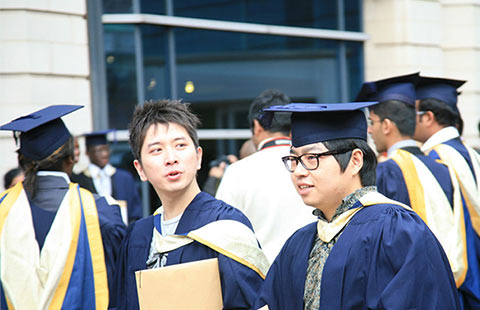'Golden time' approaching for Chinese students in Britain to start business
(Xinhua) Updated: 2015-10-26 09:24The university also makes funding and professional advice available to students with a great business idea and provides links to commercial mentors, according to Burnett.
"Our aim is that support of innovation, entrepreneurship, team working and new business support is embedded in teaching in such a way that students are able to lead and develop ideas either as start-ups or within existing companies," said Burnett.
As for the British investors, they have shown interest in start-up projects led by international students, especially those from China.
Hao said that investors in Britain have their eyes on start-up projects linked to emerging markets like China, which are believed to have better growth potential despite risks.
"Britain and China have so many great resources, be it education, schools, the Internet or creativity industry, and if the governments can do more to boost the development in these areas, the young entrepreneurs may have a better chance to turn the impossible into reality, which is really a great thing for the two countries," said Hao.
Hao and his partners have planned to expand the British round of the start-up competition next year, as it might give more chances to students like Yao, though success is still a rare thing among student-led start-ups.
"Despite challenges, we can see that China's government and institutions are starting to notice the great potential of overseas Chinese students... and we are optimistic about the future development of start-ups led by these students," said Yao.
- China, Britain strengthen cooperation to push yuan's global use
- China, Britain raise curtain of 'golden time' in ties with $60b deals
- Britain counts on China's infrastructure prowess for economic revival
- China, Britain must fully tap potential in trade
- Top 10 degrees that provide highest paid jobs in UK
- Belt and Road helps China become net capital exporter: Report
- Macao concludes major trade fair with 50 deals inked
- China's building materials sector remains sluggish
- Chinese listed company to buy Texas oil fields in 8.3b yuan deal
- China steel output falls, prices retreat
- Registered capital of entities triples in Tianjin FTZ
- China's 12th Five-Year Plan achievements a milestone for centenary goal
- Covestro chief bullish on China
- ICBC helps investors abroad














